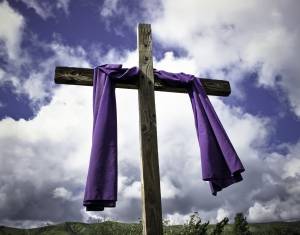The Jewish community celebrates the New Year in the fall. They call the holiday Rosh Hashanah. It begins a period of 10 days known as the High Holy Days and commences with Yom Kippur, the Day of Atonement. Yom Kippur is probably the most sacred holiday to the Jews. Even secular Jews attend synagogue. It might be the only day some Jews go to temple, much like Christians attending church service on Easter or Christmas Eve. You may not be Jewish, or even believe that there is a supreme being; however, you can learn from this holiday and approach the upcoming traditional holiday season with a clean slate.
Traditions of Yom Kippur
Yom Kippur is the day when Jews make apologies to God for their sins. In order to approach God, it’s traditional to fast and pray for 24 hours. In addition to fasting, Jews do not have marital relations, do not wear leather shoes, do not wash and do not bathe during Yom Kippur. Orthodox Jews may immerse in a mikveh before Yom Kippur as a symbol of purity. Many Jews will wear white, as another way of presenting themselves as pure.
Prayers of repentance are said during services at the synagogue. Public and private atonement is made before God, depending on the desire of the individual. The process of asking for forgiveness is called Teshuva. It involves:
- Regret of having committed the sin
- A resolve not to commit the sin in the future
- Confession before God
Also, Jews will give charity to those less fortunate on Yom Kippur. This year, Yom Kippur falls on October 12, but it actually begins at sunset on the day before and ends at nightfall on the actual day. Following Yom Kippur, families might have a feast in celebration of completing the fast.
What We Can Learn
In 1982, the band Chicago came out with a song, “Hard to Say I’m Sorry.” The song might be referencing two lovers who had a disagreement, but most of us, if we were really honest, don’t like to admit when we’re wrong or we’ve done something to injure another person’s feelings. Maybe you don’t believe in God, but it’s probable that you may have hurt someone in the past. We all make mistakes and say things that we probably should have thought about before opening our mouth or typing them at the keyboard. Learning how the Jews apologize to God, we can actually learn how to apologize to others.
Have you ever said to someone, “I’m sorry you feel that way” or “I’m sorry if I hurt you”? Take a second to look at those phrases. Although it may seem like a case of semantics, you might make them feel as if you’re dismissing their feelings when you say those words. Are you sorry for your actions or for how they reacted to your mistake?
A better way to apologize is to say, “I’m sorry I did . . . I cannot excuse my behavior, and I won’t let it happen again. Please forgive me.” There may be extenuating circumstances. Maybe the other person made you mad, but you cannot control anyone’s behavior but your own. Think about your own attitude when you say you’re sorry. And remember that all you can do is make the apology. The other person does not have to accept your apology. It could happen that day, but it might not happen for years. Don’t make the situation worse by forcing someone to forgive you.
Christmas and the New Year are coming up. Think about making amends with family members or neighbors this year to have a clean conscious. Fix those relationships that are broken and truly celebrate the good will of the upcoming season.




